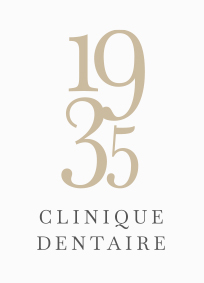After undergoing a root canal, many people dread the prospect of experiencing intense pain. However, the pain after a root canal treatment can be effectively managed and significantly relieved using the right methods.
In this article, our Montreal dentists provide tips to help ease your recovery from a root canal treatment and reduce any associated pain.
What is a root canal?
A root canal is a procedure in which a dental surgeon removes severely damaged dental pulp from a tooth.
For example, an untreated cavity could lead to a tooth abscess, which causes a lot of pain. A root canal will help the tooth heal properly.
To perform a root canal, your dentist will create a small opening on the tooth to access the infected pulp. Then they will remove the pulp, and disinfect and seal the tooth.
What causes pain after a root canal?
Although a root canal will ultimately eliminate the pain associated with dental infection, some patients may still experience discomfort or pain after the procedure. This pain can be disconcerting, but is usually the normal result of one of several factors.
- Inflammation: During a root canal treatment, infected pulp is removed and the tooth canal is cleaned and sealed. This may provoke a natural inflammatory reaction in the body, which is usually temporary and should gradually diminish over the course of a few days.
- Individual physical reactions: Everyone reacts differently to dental and medical treatments. Some patients may experience more intense pain after root canal treatment due to their individual pain threshold, heightened sensitivity or other factors.
- Complexity of the treatment: The amount of pain following a root canal treatment can vary depending on the complexity of the treatment itself. Teeth with complex canals or severe infections may result in more pain.
- Not following post-operative advice: You could experience more pain if you do not follow the post-op advice given by your dentist. Always take prescribed medication and follow any recommendations concerning rest, food and oral hygiene to promote optimal healing.
8 ways to relieve pain after a root canal
A root canal treatment itself doesn’t hurt, as the procedure is performed under local anaesthetic like many other dental care procedures. If you are feeling sharp pain after the treatment, here are 8 tips to give yourself some relief.
1. Follow post-op instructions
Your dentist will provide you with specific instructions following your root canal. These may include adjustments to your diet and oral hygiene, and activities to avoid during the recovery period. Follow these instructions carefully to promote rapid healing and minimize complications.
2. Take anti-inflammatory drugs
Generally speaking, anti-inflammatory drugs available from pharmacies are sufficient to treat pain after a root canal, in situations where the pain is caused by mild inflammation around the treated tooth.
However, if your pain persists despite taking medication, it’s important to call your dentist as soon as possible.
Also, remember to follow the instructions on your medication carefully. Never exceed the recommended daily dosage.
3. Sleep with your head elevated
One way to relieve pain during the night is to sleep with your head elevated. This will prevent your gums and nerves from throbbing painfully.
Simply stack a few pillows under your head before going to bed.
4. Apply cold compresses
To reduce swelling and relieve pain, you can gently apply cold compresses to the treated area. Place the cold compress on your cheek for short periods, being careful not to apply it directly to the skin as this could cause frostbite.
5. Rinse your mouth with salt water
This home remedy, a common method to get rid of a toothache, can also be used to relieve pain after root canal treatment.
Simply dilute a small amount of salt in warm water and rinse your mouth with it. This will disinfect your mouth and eliminate bacteria that may be causing pain.
6. Avoid aggravations
Avoid smoking and consuming alcoholic beverages, as these factors can hinder healing and increase pain following root canalization.
7. Hydration and rest
Make sure you stay well hydrated and take the time to rest. Rest contributes to healing and helps reduce pain.
8. Maintain excellent oral hygiene
Finally, make sure to maintain good oral hygiene after a root canal to reduce the risk of infection. Continue brushing your teeth twice a day and floss daily to limit bacteria growth.
Clinique Dentaire 1935: root canal treatment with minimal pain!
It is common to experience pain after a root canal, usually due to inflammation of the gums around the tooth that has been treated.
The pain should be easy to manage using the tips listed above. However, if you are still feeling pain a week after the procedure, contact your dentist to confirm that you don’t have an infection.
At Clinique Dentaire 1935, we perform root canals every day. With our proven expertise we can offer you an effective root canal treatment that causes as little pain as possible.
Contact us today to book an appointment and bring back your smile!
